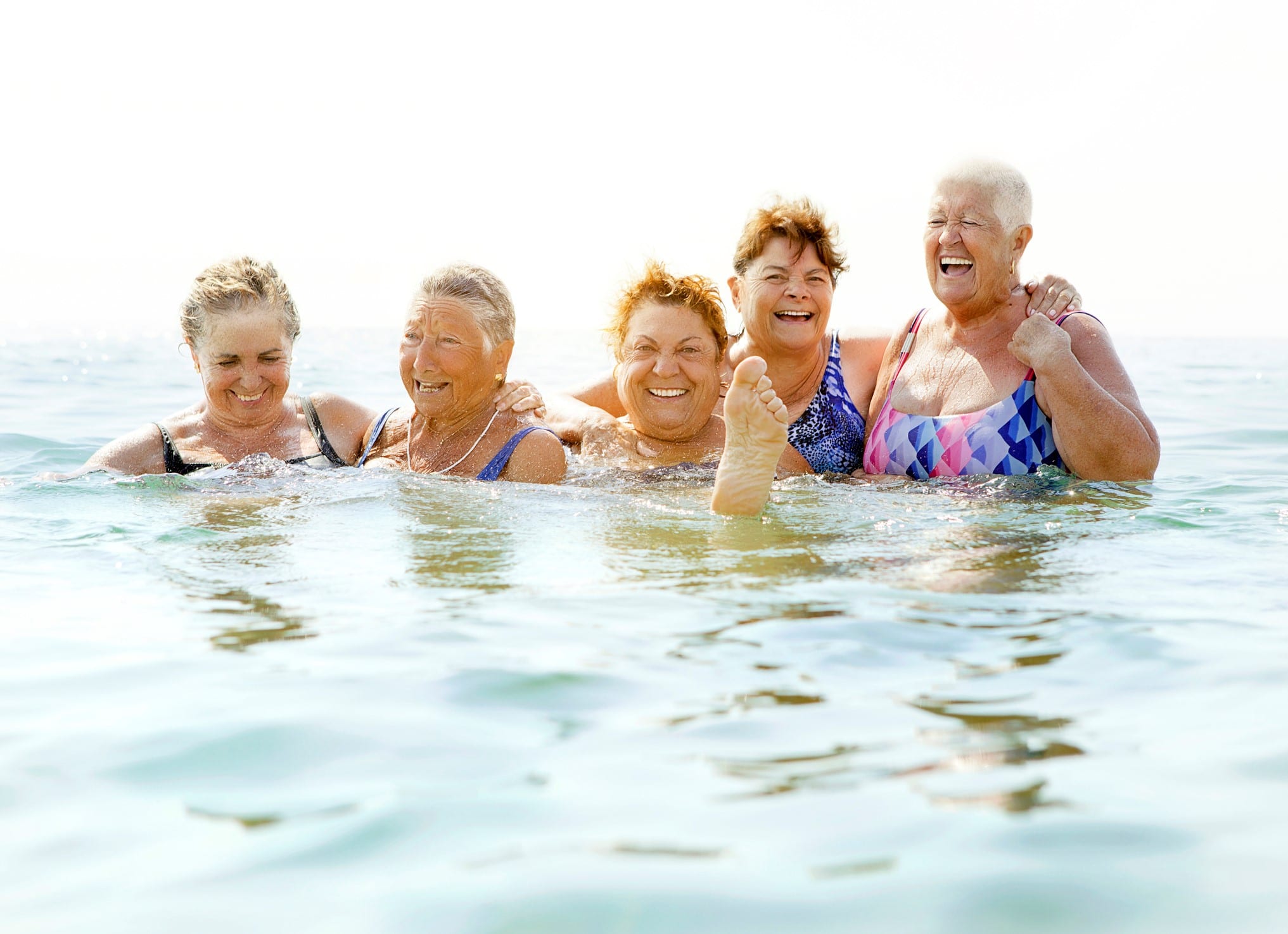Summer Safety Tips for Seniors to Prevent Heat-Related Illness
June 14, 2018 | Lifestyle | 0 comments

Hot weather can be particularly dangerous for seniors. Poor circulation, heart and lung disease, high blood pressure, inability to sweat (caused by some medications), and obesity all increase the risks of heat exhaustion and heat stroke. Ability to sense changes in body temperature decrease with aging. According to a University of Chicago Medical Center study, 40 percent of heat-related deaths in the U.S. were among people aged 65 and older.
Don’t Let Hot Summer Days Get the Best of You
To prevent overheating, and heat-related illnesses, which can be severe, seniors should consider the following strategies:
- During long, severe heat waves, if living space is not air-conditioned, rent one for short-term use;
- Drink plenty of cool liquids even when not thirsty;
- Limit alcohol and caffeine drinks;
- Do not eat hot, heavy meals;
- Eat light, cold meals and cool or cold fruit and snacks;
- Sit with feet in a pan of cool water;
- Apply a cool cloth on the back of the neck;
- Take frequent showers in cool water;
- Wear clothing that is as light, loose, and breathable as possible;
- Avoid upper floors — basements and ground floor rooms are cooler;
- Use caution with electric fans. Older adults can feel cooler than they actually are when sitting in front of a fan. The CDC recommends using electric fans only when the temperature is below 90 degrees;
- Visit a public area that is air-conditioned such as a mall or library. Some towns have cooling centers for vulnerable people during dangerously hot days. As part of your summer preparations, find out the availability and location of cooling centers.
Fun Summer Activities to Keep Cool
A heat wave does not mean seniors need to stay home. Determine which favorite activities are safe for hot days and discover new ones. Here are a few ideas:
- Go to an ice cream parlor; it is sure to be cool inside and ice cream dishes are refreshing treats;
- Go swimming in an outdoor pool with shady areas; (Swimming is the best exercise for seniors)
- Go wading in a lake or river with heavy shade;
- Take in a museum or art gallery;
- See a newly released movie;
- Check out the library for programs of interest to seniors;
- Enjoy a Christmas in July shopping expedition in an enclosed mall. Select a holiday gift or two;
- If the house is cool, enjoy an indoor picnic;
- Watch movies at home that have wintery settings such as Frozen, The Ice Age, Happy Feet, White Christmas, Fargo, The Polar Express, and Dr. Zhivago.
Recognize Warning Signs of Heat-Related Health Concerns
Learn about the warning signs of heat-related health problems and be on the lookout for them:
Heat stroke is when the core body temperature is 104 degrees and higher. It is a medical emergency. Symptoms include a headache, dizziness, hot skin, muscle weakness, rapid heartbeat, rapid breathing, seizures, and unconsciousness. If heat stroke is suspected, call 911 and initiate first aid:
- Move the person to an air-conditioned environment or a cool, shady spot and remove all unnecessary clothing;
- Fan the patient while wetting the skin with the nearest available water source. Don’t overlook the garden hose;
- Apply ice packs to the patient’s armpits, groin, neck, and back;
- Immerse the patient in a tub of cool water.
Heat exhaustion symptoms may develop suddenly or gradually. They include cool, moist skin with goose bumps, profuse sweating, dizziness and fatigue, weak pulse, muscle cramps, low blood pressure when standing, headache, and nausea. Left untreated, heat exhaustion can lead to the more severe heat stroke. If you suspect heat exhaustion, stop all activity, rest in a cooler place, and drink cool water or chilled sports drinks. If symptoms persist or worsen, seek medical attention.
Being aware of summer’s dangers for seniors will help you plan enjoyable summertime activities without risking your health.